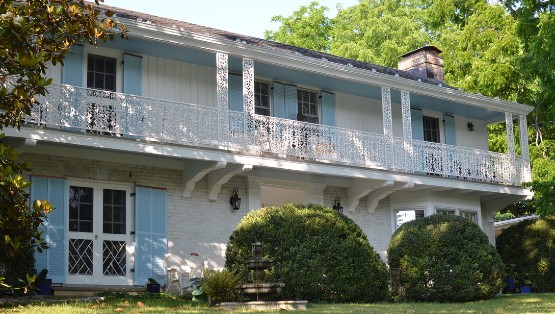
In the academic world, language barriers are a significant challenge between fellow multinational academics. In the early to mid 20th century, French and German were the preferred academic languages. But English has already taken over that role as the lingua franca of the academic world in many academic disciplines.
However, if you’re working in an academic field or specialization that requires you to make your work translated in other languages, then you should consider getting in touch with a professional translation agency. Even if you’re an academic specializing in dead languages such as Latin, a professional translation agency will have no problem getting the right Latin translator for you as this reassuring article can testify.
The Critical Nature of Accurate Translations
You might be familiar with the fact that in different academic disciplines, they have varying writing styles that are unique from one another. One discipline allows for purely descriptive writing, other disciplines want analytic proses, and another discipline calls for more creative approach. Also, each discipline also has its own industry-standard jargon.
Then it’s no surprise that there are also different writing styles for every language and national academic culture. As expected, the writing style also varies between academic disciplines. In essence, all languages are different. They each have their own prescriptive rules, vocabulary choice, creative sayings such as idioms and metaphors that is unique to their language habits.
The long and short of it is that translating academic writing presents unique challenges in comparison to other translation work. Even with contextually-accurate translated vocabulary, there’s still the issue of proper phrasing. It’s an area that either a native-speaker academic or one that spent years of being immersed in another academic language can notice and correct.
Some researchers are wary of translating their work since the style of writing is highly specialized and would rather not trust their work to a random translator. Good writing is undoubtedly part of the formula that strengthens a paper’s integrity.
When presenting and defending a paper’s arguments, the strength of the argument is partly dependent on the writing prowess of the author. An improperly translated paper might be misjudged due to the author’s awkward prose rather than the paper’s actual findings.
Hiring a Reputable Translation Agency That Has Connections Academics Need
As mentioned earlier, academic translation is tricky business compared to other translation works. In some disciplines, the jargon is very technical and unique to the industry. In other fields such as literature, social sciences, and humanities, the writing is heavily-context based.
This is why you need to be more meticulous in choosing the ideal professional translation agency. To start, the translation agency should offer the language pair/s that you need such as English to Spanish or English to German.
They should also offer the exact services that a researcher needs such as research paper translation, document translation services, and proofreading services. Another thing to consider, one that matters heavily, is to ensure that translation agency has translators that also happen to be academics that have the experience in the similar field as you.
Keep in mind that under publishing guidelines, you have to provide the original citation of your original article and in your translated version, you should also cite the name of the translator.
Bridging the Gap between Critical Research and Policy-Making
In the context of international academic community, there are critical research areas such as healthcare, environmental research, conservationism, and etc. that are centered in countries where English is not widely spoken.
This creates a problem for native researchers when they try to disseminate their research internationally since English is not their working language and don’t have access to proper writing and language support resources.
There are many instances where crucial research was often ignored since it was not published in English. Take it a look at this compelling piece that highlights the consequences of English being standard language in science. The piece also highlights examples of critical research that was ignored since it was not written in English and published in an undistinguished foreign national publication.
As a service, native-English speaking researchers that conduct research and field work in critical areas should strive to make their research relevant and accessible to the national academic community of their target country.
They can do this by translating their work to the national language and publish in national journals. In turn, this may expedite critical policy proposals since national policy-makers have access to conclusive findings.
Most importantly, they can use their privilege and make their findings relevant to the international academic community by publishing in English as they normally do. Note the word privilege. Look forward into reading the next section and learn more about a critical issue that’s affecting the international academic community.
The Real Situation in the International Academic Community
As mentioned in the beginning of this article, English is considered as the hegemonic language of the academic world. The argument for it is that as a matter of logistical convenience, it creates a standardized way of communication between international academics.
The problem with English as the standard language is that non-English speaking researchers are at an immense disadvantage. Foreign researchers are under immense pressure from their own national institutions to translate their articles in English and publish in renowned English journal.
The problem is not so much that English is the undisputed language authority, but rather this creates a high level of inequality in the international academic community. Academic institutions based in the United States, Canada, United Kingdom, and Australia are in a much more privileged position.
Native English-speaking researchers do not have to worry about translating their articles and their institutions enjoy more privileges in regards to their connections with premier journals.
On the other hand, foreign researchers do not have an equal level of access to academic resources such English academic writing training programs and connections to renowned English publishers.
Their research is often ignored simply because it wasn’t written and published in English. From their account, learning a new language takes time. How much more so in mastering the prose of academic writing specific to their chosen field.
What Native English Researchers Can Do: Final Takeaway
Increasing your recognition and citation rates is just one of the many benefits of translating English works into other national languages. Taking into account of everything so far, you can see that translating your work provides mutual benefits for the international academic community and not just for the sole individual.
What you can also as a native English-speaking researcher is to widen your international footprint is by reaching out to national universities and attending international conferences where English is not the main language of communication.
Ultimately, it is better to learn new languages. This way, you can establish your career as a multilingual researcher, network with foreign researchers, and even aid them in translating and proofreading their work to English to help bring their work under the international academic spotlight.
Additionally, as a service and goodwill gesture to foreign researchers who don’t have access to pricey subscriptions to quality peer-reviewed journals, you can publish your article as an open educational resource for everyone from all countries to see. In the end, you are part of a wider ecosystem where your work can benefit your foreign colleagues and everyone in this world.










